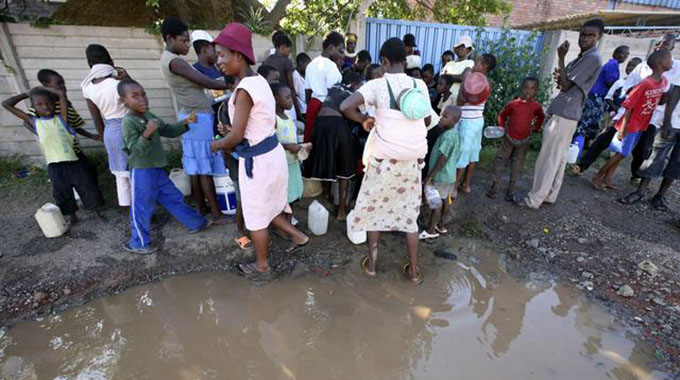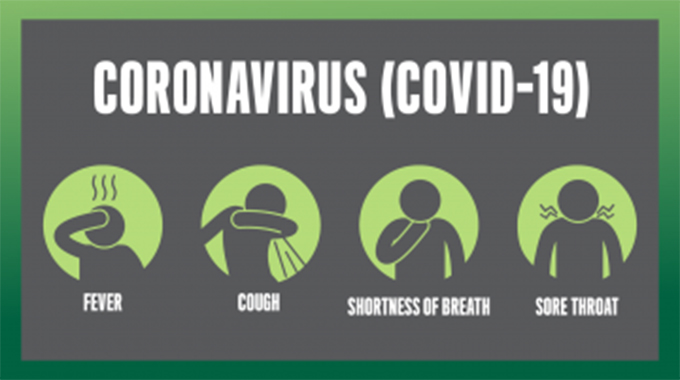Covid-19 rekindles 2008 cholera memories

Thupeyo Muleya Beitbridge Bureau
Beitbridge District is among high-risk areas for any disease outbreak due to its geographical location and being a host to Sadc’s busiest inland port of entry.
This spells the need for communities and authorities to collaborate and strengthen awareness programmes in light of the growing global infections of people with the coronavirus (Covid-19).
The town has over 70 000 residents, while the rural component has over 160 000 people, and an additional daily transit population of 14 000 all relying on one referral hospital with 140 beds.
There are around five private clinics in the port town and 16 rural health centres.
In 2008, Beitbridge contributed 26 percent to national cholera cases when the disease affected at least 98 000 people killing 4 000 others.
Currently, members of the community in the area are reportedly watching with keen interest as cases of Covid-19 are gradually increasing across the globe and closer to home in South Africa.
Huge gatherings are slowly fading at the usual spots around the town.
“As residents, we are closely following updates on the pandemic across the globe especially in countries very close to us and we are happy that the Government and its partners are doing enough in terms of information dissemination.
“I want to encourage fellow residents to take the prevention and treatment advice seriously to save lives in the event the disease spreads to our town,” said Ms Rumbedzani Ribombo a representative of Beitbridge town residents.
She says personal hygiene and being alert and cooperative is key to minimising the effects of COVID-19.
Beitbridge West Constituency Legislator, Ruth Maboyi reckons that although the Government is working hard on the ground in terms of national responsiveness, it is critical to spread awareness and education to the grassroots level.
She says there are still a lot of people in remote areas of the district who need intensive education on the do’s and don’ts to minimise the risk of contracting the dreaded disease.
“This is a disease which we cannot ignore and even the first world is struggling to contain it. As Beitbridge, our headache is on how to handle it considering that we now have many confirmed cases in South Africa.
“For a start let’s embrace efforts by well-meaning Zimbabweans and Government to minimise the risk of the spread of the disease. People must not have a phobia of clinics and other health institutions. Let’s encourage each other to seek medical assistance at the first instance we suspect illness,” said the legislator.
The town council is beefing up staff in its environmental health department to enforce laws and measures that reduce the spread of diseases at market places, shopping complexes, and social gatherings.
“Our responsive and preparedness plan is in full swing. This has a focus on internal issues in the town but also complements what the national Government is already doing.
“Awareness posters, loud hailing, education to targeted crowd areas, schools, bus termini are some of the ongoing measures we are having on the ground. We need to work together to strengthen our capacity on the ground,” said councillor Ncube.
The Government has since set up a temporary quarantine centre at the Reception and Support Centre to handle all suspected cases pending transportation to the Thorngrove Infectious Disease Centre in Bulawayo.
At the border post, since the past two weeks, all travellers have to undergo mandatory screening at port health before proceeding for immigration formalities.








Comments